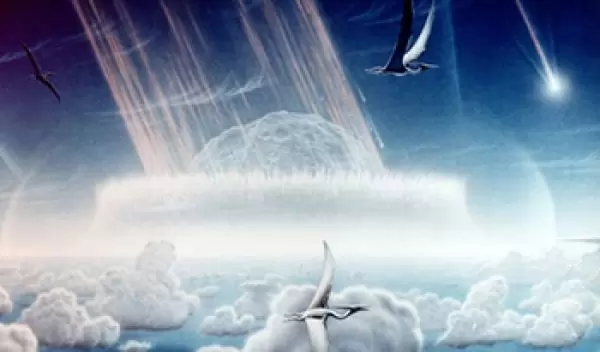
In death of the dinosaurs, it was all about the asteroid
Volcanic activity did not play a direct role in the mass extinction event that killed the dinosaurs, according to an international team of researchers. It was all about the impact of an asteroid, the scientists report in a paper published in Science.
Yale University geologist Pincelli Hull and her colleagues found that volcanic eruptions in India in the region known as the Deccan Traps happened well before the Cretaceous-Paleogene extinction event 66 million years ago. Therefore, the scientists say, volcanoes didn’t contribute to the mass extinction.
The research is funded by the National Science Foundation.
Most scientists acknowledge that the mass extinction event, also known as K-Pg, occurred after an asteroid slammed into Earth. Some researchers have also focused on the role of volcanoes in K-Pg, finding indications that volcanic activity happened around the same time.
"Volcanoes can drive mass extinctions because they release lots of gases that can alter the climate and acidify the world," said Hull, lead author of the new study. "But recent work has focused on the timing of lava eruption rather than gas release."
To pinpoint the timing of volcanic gas emission, Hull and her colleagues compared global temperature change and carbon isotopes in marine fossils with models of the climate effect of carbon dioxide release. They concluded that most of the gas release happened well before the asteroid impact -- and that the asteroid was the sole driver of the mass extinction.
The International Ocean Discovery Program and Yale University also funded the research.


